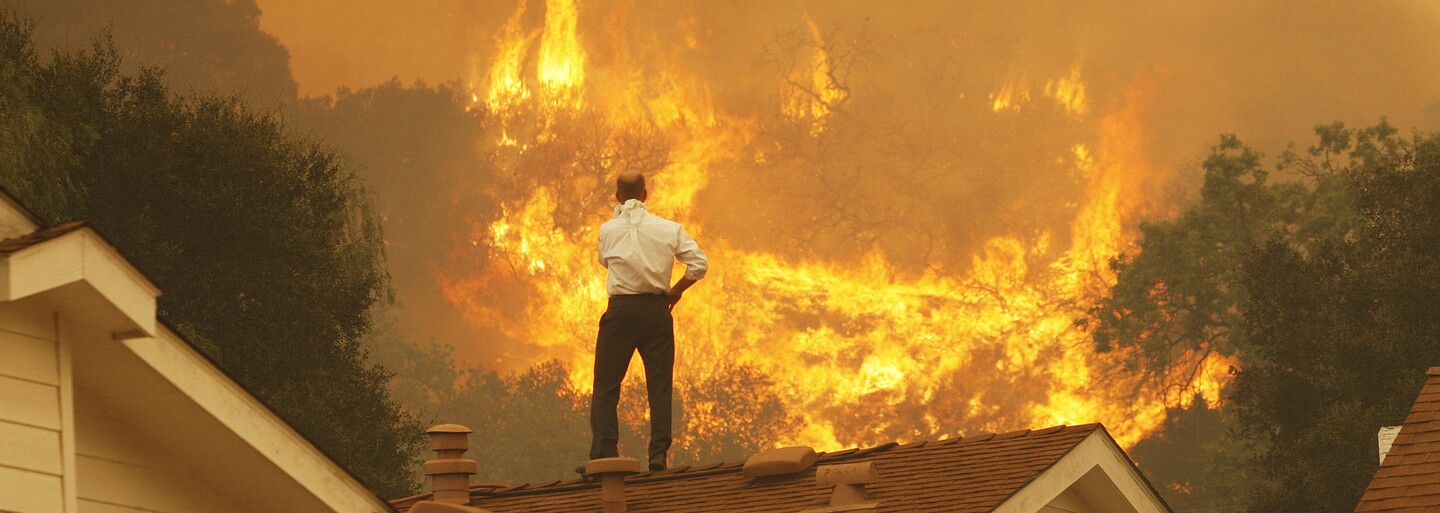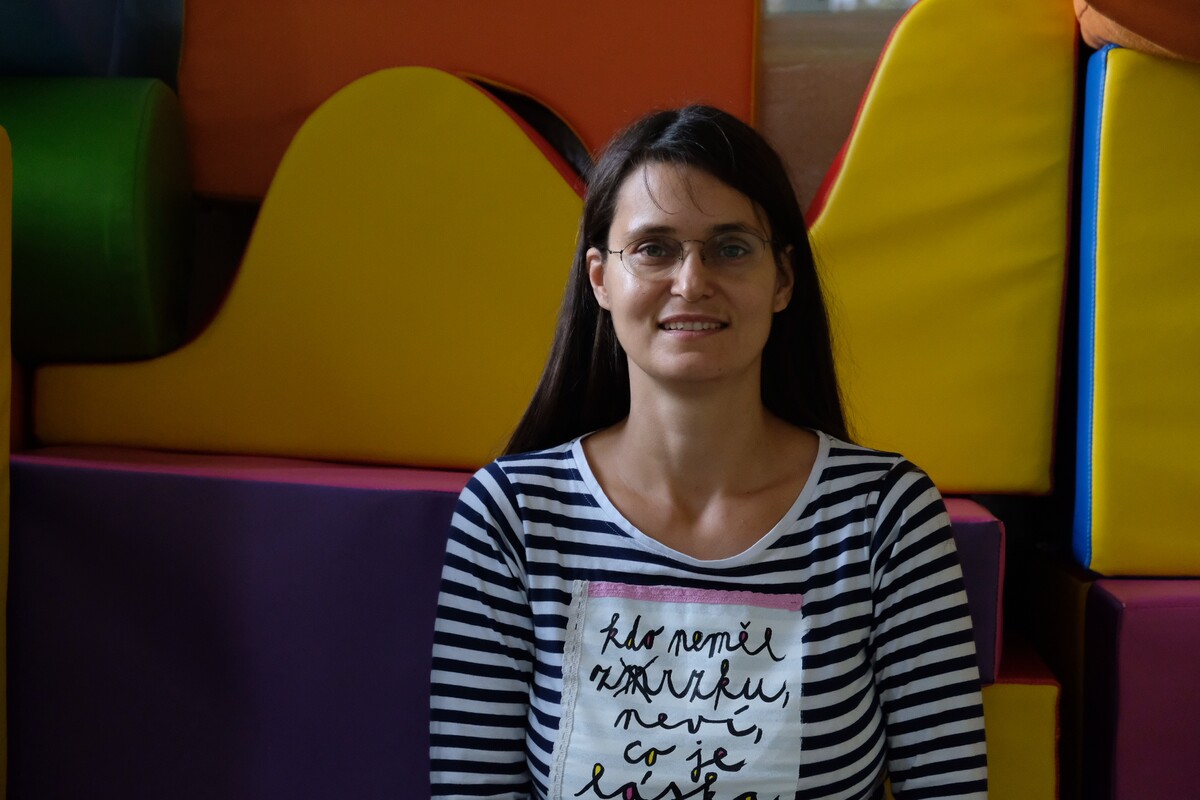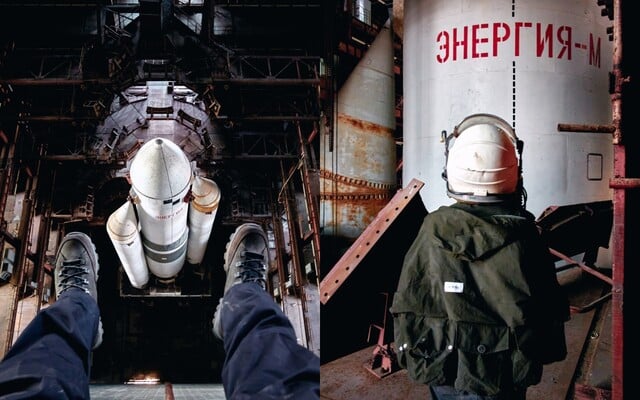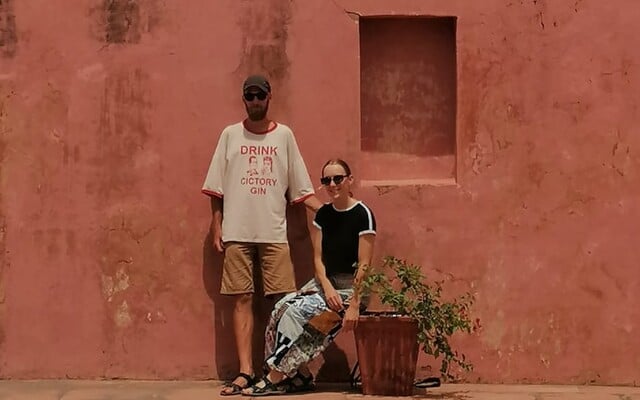 Ozempic can cause vision loss. A new study has shown a link between the drug and eye problems
Ozempic can cause vision loss. A new study has shown a link between the drug and eye problems
Ozempic can cause vision loss. A new study has shown a link between the drug and eye problems
Ozempic can cause vision loss. A new study has shown a link between the drug and eye problems
Eco-anxiety is on the Rise and There are Ways How We Can Go About It
We're all affected with sadness and despair over the environmental transformation to a certain extent. Petra has been working on environmental issues for 20 years. We talked to her about the matters of frustration, apathy, but also hope for the future.
If problems persis, please contact administrator.

The most horrifying scenarios are coming at you from all directions these days. If you follow the news ever so slightly, you have certainly heard of animal extinctions, large-scale fires and extreme weather whirlwinds. You've most likely contemplated the issue of melting glaciers and rising ocean levels, mass climate migration and the pollution of water, soil and air.
Perhaps the most famous climate activist of today, Greta Thunberg, admitted that when she was 11 years old, she began to suffer from depression, stopped talking and eating, and lost 10 kilograms. In her own words, she couldn't understand why something as important as climate change is not being addressed with greater urgency. Greta was later diagnosed with obsessive-compulsive disorder (OCD) in combination with selective mutism. Therefore, Greta can only speak when she considers it important.
If you also feel similar feelings of hopelessness and heaviness, you are not alone and it definitely doesn't make you weak. Coping with the ecological crisis while avoiding the fear of the world lighting up on fire, becoming flooded or ending up in a post-apocalyptic war-like rage for remaining sources of water, energy and crops, naturally, isn't by any means easy.
Today, the entire planet faces a gigantic challenge: to keep human civilization more or less alive without fundamentally jeopardizing the vital functions of nature.
In the recent years, mental health has also been mentioned much more frequently in the media, especially in connection with climate change. Nevertheless, this issue is still relatively new and the terms anxiety, sadness, grief and depression are often not properly accepted.
Grief or anxiety?
Ivana Spillerova, psychologist from the University Hospital in Czech Republic, and her colleagues have recorded an increased ocurrence of ecological topics in the last two or three years. She points out that there is a difference between grief and anxiety. In the case of ecological grief, it finds parallels with the feelings we experience when we lose someone or something important, such as losing good health, a relationship or death of a loved one. "Grief is a healthy and adequate response to the stimulus, so we do not call it a diagnosis. It may be considered one if a person's response doesn't match the stimulus."
Unlike grief, anxiety doesn't necessarily have to be sad. "One is rather under constant tension from what may happen." Environmental anxiety can be one of the many demonstrations of generalized anxiety disorder. "In both cases, there isn't one, but a whole plethora of triggers. Countless threat factors appear in the event of an ecological crisis," says the psychologist. Anxiety often goes hand in hand with apathy.
She also mentions that the apathetic state is a manifestation of depression. "Anxiety and depression are two different diagnoses, but they often go hand in hand."
The American Psychological Association only published its first expert article on the subject in 2017. In Europe, a group of Swedish psychologists and psychologists published a public report in 2019 predicting that “the ongoing environmental crisis without active solutions and attention from adults and public officials is leading to the risk that more and more young people will face anxiety and depression".
Climatic hopelessness is triggered mainly with young people in particular
Young people are particularly worried about the climate change. Majority thinks that humanity has failed, and many are "very concerned" on this issue.
We wanted to know more, so we contacted Petra Jezekova from the Center for Environmental and Ethical Education Zivica. Petra has been dedicated to environmental protection and environmental education for 20 years and has collaborated on multiple impactful projects.
What is the state of public awareness of the issue of ecological grief and anxiety?
According to a Median survey, it is clear that people are worried about the climate change. In general, anxiety and grief are primarily a matter for the young generation. For example, high school students talk about this fear very often. I have a friend whose daughter is serious about this. She is a sensitive child and is really worried about what will happen in nature. She is afraid of what's coming.

Do you think this is a new feeling in our region?
I think for sure. I have been working in environmental education for many years. We used to talk about waste and that some animals will probably become extinct. But we haven't addressed the children's fear of the future whatsoever.
What age groups do you work with?
From kindergarteners to adults. However, mostly with kindergarteners, and kids from primary and secondary schools.
Who do you most associate environmental grief and anxiety with?
Definitely with high school students. It's the teenagers who are beginning to realize the wider context of things. Kindergarteners aren't yet taught about climate change and in primary schools there's only a few cases from parents' initiatives. In general, it really depends on how sensitive the particular child is.
My 14-year-old son comes into contact with environmental issues, but he likes to say: This is your problem. You caused it yourself, so you deal with it. In his case, we can talk about seclusion. A colleague of mine has two sons who have a more active approach in thinking about it.
It all depends on the child's personality. Many children choose to get involved with homelessness or people with disabilities instead. Everyone is looking for their own mission and that's totally fine. One teacher told me once: Well, my children don't want to deal with the environment. They are more interested in helping children from orphanages. And I told her it was okay. When children have a passion, there is no need to force them into something else.
Do you think the overall trend of social engagement is on the rise?Certainly yes. Which is also due to the fact that it's widely discussed in the media almost daily. For example, environmental education was common in the past, but it was never in the news. There was no public talk of climate conferences or politicians' commitments.
When you watch the news, it is talked about, although many times contradictory, unfortunately. Themes about whether we should keep using coal or whether solar panels are good often appear in the media. So everyone is aware of that. If it hadn't been talked about, people probably wouldn't be about it so much, even if the situation was really bad.
You personally have a degree in environmental studies at the Faculty of Science. What do you think is the relationship between one's awareness and their emotional experience?
If you are informed, you also feel more anxious and need to do something about the cause. However, what matters most is the nature. Even someone who may have access to a lot of information, such as my partner who's trying to behave as ecologically as possible, doesn't perceive this as "his problem" personally and tends to say, "Let the following generations deal with it."
It very much depends on everyone's approach. You can have a lot of information, but expect solutions from others and, vice versa, even with little information you can have a healthy relationship with the environment and be active in your approach. Unfortunately, environmental anxiety also comes most often when you are sensitive and have enough information. In this case it can be called mutual reinforcement.
Doesn't anxiety and helplessness just mean that people are well informed, but don't think they can have enough impact? I dare to disagree, people aren't helpless. However, the changes needed are so major that it's often simply unwanted. For some, they are, of course, financially unavailable. The others just don't want to change. They want the new cars, TVs and phones. All of it.

What advice would you give to people who want to actively improve the world but are afraid of mental suffering?It is very good if they meet people with similar interests. In this way, they can support each other. Because when you're alone, you feel that you can't do anything. If an individual sorts out waste or does not drive, the benefits may seem small. However, they can meet with others, in various groups and communities, or join as volunteers in environmental organization.
Once they see that there's more of them, 20, 50 or 100, it immediately feels a lot better. In addition, when such a group accomplishes something - implements a project, enforces measures, fulfils a vision - their mental state also improves. From my 20 years of experience, I know that when we are "burned out", a workshop, meeting or training fills us with new energy, we get fresh ideas, learn what other people are doing, whom we can collaborate with. I highly recommend it.
When I say to myself that everything sucks, that I can't do anything about it, and therefore screw it all, my mental state also worsens. Anxiety and depression knock at the door. It is important to face the reality. We see many initiatives around the world that focus on tomorrow and how they want to see it. They are focusing on solutions, say environmental transport or reducing meat consumption, and they are making progress.
They change specific things and try to inspire parents or classmates. For example, they may enforce to have at least one vegetarian meal to choose from in the dining room. When children achieve such changes, not only will they have a positive effect on the climate, but they will also feel better about themselves in the future.
School can be quite a harsh environment. Isn't the topic of climate change perceived as "wussy"?
It depends on the collective and also on what kind of child it is. If the "cool people" in the class are devoted to ecology, they have a better chance of pulling others to their side, since other kids look up to them already.
If, on the other hand, a quiet, sensitive child who is not visible or popular in the collective gets involved, they may get bullied for it. However, they would probably be ridiculed regardless, even if they got involved with something else. It is here that you can see why there's good connection outside the classroom. If a child feels that they don't get recognition in class, they may say to themselves, "Okay, they don't get me here, they just make fun of me. I'd rather deal with similar people elsewhere." Within another collective, they may be better received and that can really make a big difference.
Now a bit of a personal question, if I may. Have you ever felt down in the dumps because of the climate?
I myself suffer of climate anxiety. I have to say I think about it every day. And that's why I attended workshops on this topic. I studied the environment, I deal with it at work and I am also preparing a show for the radio.
With each purchase, I consider what to buy, and I pause for each purchase on top of that. Whenever I cook, I say I can't waste gas. Similarly with heating.
Does environmental anxiety have an impact on the rise of the so-called eco-mothers? Certainly yes. When we still had an eco-shop, mothers came to us saying that it didn't bother the before, but now that they had a baby it did. They want to dress them a certain way and feed them a certain way. What kind of future awaits their kids? New parents are a very good target group in an ecological way of life.
However, we gotta be careful not to grow into eco-consumption. Not many people are willing to change their lifestyle completely. Most of us would prefer if some technology would solve everything so they could continue "business as usual". But that's not happening.
On the other hand, have you encountered that people would not want to have children at all due to uncertain future? I meet people who don't want to have children in internet forum discussions. Personally, I know a few people that were taking that into account. At a certain age, however, desire for children powers through. As a result, they just tend to have fewer children.
Do you think there is an age limit beyond which it is too late to switch to an optimistic eco-regime?I don't think so. I also know many eco-active grandmothers or retired teachers. Surveys generally show that people aren't willing to make changes. They know something is bothering them, but they expect science and technology to come and save them. We can see similar tendency in smokers or obese people.
If problems persis, please contact administrator.














